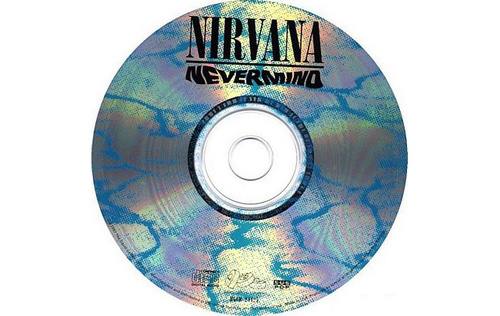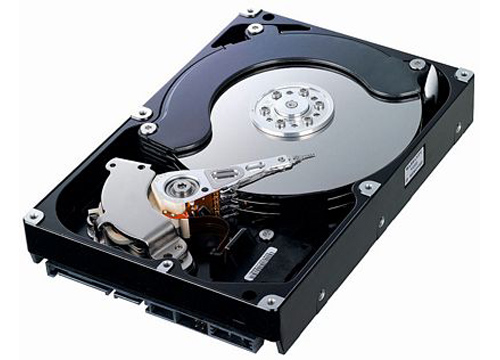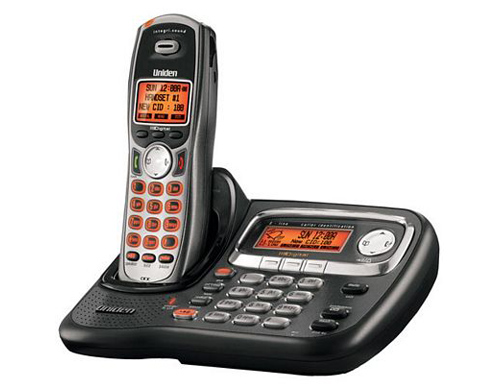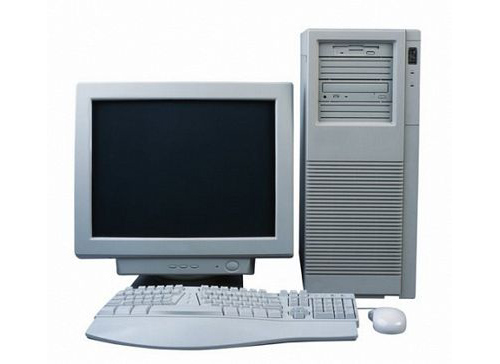Written by gizmodo
Twelve teetering technologies: will they survive or die? MaximumPC rounds up its Dirty Dozen techs that they expect to die out by 2020—or at least come close. Here’s who’s on the chopping block.
You will likely disagree with some of our assessments. But you’re wrong and we’re right. At least we think we’re right. And if we’re one day proven wrong, hopefully you’ll have forgotten our bold stance and bravado.
And we’re not taking the easy route here either. We’re not calling for the death of obvious targets such as fax machines. No, we like to think we’re dealing with rather more controversial subjects, both on the thumbs-up and on the thumbs-down side of things. And if you opt to disbelieve us by buying into one of our doomed concepts, well, don’t say we didn’t warn you.
The Doomed
1) Pre-recorded Physical Media
 As online connectivity, in either its wired or wireless guise, expands toward ubiquity, as data transmission rates increase, and as the proliferation of Internet-centric devices in our society continues unabated, there’s little doubt the Web will soon be the hub for all our personal electronic entertainment. How could it not?
As online connectivity, in either its wired or wireless guise, expands toward ubiquity, as data transmission rates increase, and as the proliferation of Internet-centric devices in our society continues unabated, there’s little doubt the Web will soon be the hub for all our personal electronic entertainment. How could it not?
Why then—if we can go online to get our goodies faster and with far less hassle, far less cost, and far less packaging—would pre-recorded physical media exist at all? We think it won’t.
The transition is already happening all around us. Downloadable music of course, but downloadable games and indeed on-demand gaming services too. Today, we find operating systems (Google’s Chrome) that live only in the Cloud, Blu-ray players that emphasize Internet connectivity, and recently-announced Netflix subscriptions that favour streamed over shipped movies. The list is long and it only grows longer with each passing day.
We know people who haven’t bought a CD or rented a movie disc in years. That will very shortly be the rule rather than the exception.
2) Stereoscopic (with glasses) 3D TVs

Wearing stereoscopic (3D) glasses in a movie theatre—where the environment is optimal, the screen is gargantuan, and the nerd stigma of the glasses themselves is minimized—is one thing. But at home, it’s a different story. Not only will you invest a ton o’ bucks on a 3D-capable television and 3D glasses for everyone who watches said TV, but even then the content, the quality, and the three-dimensional impact are lacking.
And one other inescapable fact—those glasses are a total hassle. If you already wear prescription glasses, they’re a hassle. If you watch TV while you’re doing other things, they’re a hassle. If you’re one of those who suffer from headaches or the eye strain that 3D glasses can cause, they’re a hassle. And they’re not exactly chic, are they?
Put all of this together and add a healthy dose of consumer confusion and apathy over the whole thing, and you begin to get an idea why 3D TV, in its current form, isn’t exactly taking the world by storm. Indeed, it’s struggling.
We humbly feel stereoscopic 3D TV has already passed its due date and is nothing more than a money pit for those who buy into it. Sure, the technology will continue to be with us for a bit yet, but the long-term prognosis is anything but optimistic. For starters, with pictures and prices that are better than ever, good old 2D TV is looking damn good these days. But waiting in the wings is an alternate – and theoretically superior – concept to stereoscopic 3D TV called “autostereoscopic” TV.
In autostereoscopic TV, eyeglasses are rendered passé and displays are ingeniously fitted with plastic lenticular sheets that refract light so each eye sees an ever so slightly unique perspective. Toshiba has recently released one such TV into the Japanese market and is set to flaunt larger iterations at 2011’s CES (Consumer and Electronics) Show.
Beyond that lies the promise of holographic TV, wherein fully realized three-dimensional subjects essentially “float” in the centre of your room (a la Princess Leia in 1977’s Star Wars). Sadly, commercially available holographic TVs are still a decade away.
Still, given the alternatives, the lack of content, and the convolution surrounding today’s brand of 3D TV, we can’t help but feel the end is nigh.
3) eBook Readers
 There’s little doubt, even to the doughtiest doubters, that Amazon’s Kindle and its ilk are darned nifty innovations. A single electronic gizmo that weighs less than many paperbacks and is slim enough to slide in a jacket pocket, yet accommodates, at least temporarily, all the books you and everyone you know could ever hope to read? Sounds great, especially now that current models offer incredible battery life, awesome displays, and commendable ease of use.
There’s little doubt, even to the doughtiest doubters, that Amazon’s Kindle and its ilk are darned nifty innovations. A single electronic gizmo that weighs less than many paperbacks and is slim enough to slide in a jacket pocket, yet accommodates, at least temporarily, all the books you and everyone you know could ever hope to read? Sounds great, especially now that current models offer incredible battery life, awesome displays, and commendable ease of use.
So why are they on our terminal list? Because as good as they are at the job they do, that’s pretty much the only job they do. Like a standard pocket knife versus its far more compelling Swiss Army cousin, a Kindle simply can’t touch a tablet, be it iPad or something else, when it comes to versatility.
Granted, the Kindle in particular has all those job-specific advantages we just outlined, but given that the far more versatile iPad is already used by many as their sole e-reader, and that its bookish panache will only improve with time and future revisions, one can reasonably assume it will take larger and larger bites from the standalone e-Book reader market. And let’s not forget smartphones. For the casual reader who places more importance on portability and singular devices, they certainly suffice.
The standalone eBook reader won’t die quietly, but in this day of escalating convergence and the increasing capabilities of top-tier converged devices, its time is marked.
4) Consumer-Level Hard Drives

When it comes to the potential demise of the consumer-level hard drive, the question isn’t “if.” It’s “when.”
And, to a lesser degree, “what.” Like Julius Caesar, the hard drive, once the beating heart of its domain and certainly one of the most often replaced/upgraded PC components of all time and thusly one of technology’s better money-makers, is under attack from all sides.
The most obvious immediate threat comes by way of flash memory solid state drives. Sure, solid state remains a far more expensive per-gigabyte solution, but it’s also much faster and (probably) much more durable. Full-scale solid state adoption likely won’t occur until the price gap closes substantially more than it already has, but we’re talking years here folks – not decades.
In the meantime, don’t expect life to get any easier for the good old hard drive. Consider, for example, the explosive growth of ultra-portable convergent devices such as smart phones and iPads. Truth is that for many of us – particularly younger folks and/or those who can get along fine without the capabilities of a full-fledged computer – PCs, laptops, and the hard drives inside them are already prehistoric.
For this growing legion of mobile hipsters, hard drives never stood a chance. Instead, they eschew space-hogging operating systems in favour of Google’s “virtual” Chrome. They store their data on built-in or removable memory cards. And in many cases, they take full advantage of the Cloud.
Indeed, if flash memory, PC/laptop apathy, and/or the possible extinction of traditional operating systems don’t drive the final nails into the coffin of the consumer-level hard drive, the Cloud likely will. Amongst the big industry players, Cloud rhetoric is high. And certainly one needs only look at the sudden proliferation of server farms all across this country (Apple’s new North Caroline monster, for example) to see the physical manifestation of it is also alive and well.
Today, hard drives are crazy cheap. So too were floppy drives and HD DVDs as their expiration date neared.
5) Keys

Keys suck. They get lost, they get stolen, they’re annoyingly inconvenient if your hands are otherwise occupied, and they poke holes in your clothing.
This is no big revelation. Society as a whole has known for a very long time the degree to which keys suck. And until we banish them forever to the land of 8-tracks and wood-paneled station wagons, they will continue to do so.
Fortunately, that banishment has already begun. Several years ago, keyless residential door hardware first appeared in the retail marketplace, enabling homeowners nationwide to open their front doors without first fishing through all their pockets. More recently, push-button automotive ignition systems began their migration from high-end luxury vehicles to more affordable cars, in turn deterring theft, reducing the chances of locking those naughty keys inside a car, and making the whole entry and exit process easier even for us of less spectacular incomes. And of course there’s biometrics—a science that in many ways has already delivered us from old school security measures in all walks of life.
Having said all that, it’s also clear that weaning ourselves from the cold, metallic grip of our jagged foes won’t be easy while there are approximately ten bazillion of them in circulation. Still, if today you can enter your home, start your car, and gain access to your 30th floor office without ever using a key, can the joys of a completely key-free future be that far off?
6) Handheld Gaming Consoles
What if you devised a really good handheld game? A game so good that a handheld console juggernaut like Sony or Nintendo wanted exclusivity? Wouldn’t that be cool? Wouldn’t that be a great position to be in?
Of course it would. Right now. But what if it all went down a few years down the road, when everyone and their goat are walking around with whatever music player/camera/computer/phone/tablet gizmo that’s become the Next Big Thing? And what if this gizmo also played a ton of decent games? And what if all these people and goats didn’t want to be bothered carrying around a second gizmo whose sole purpose was to play a select few exclusive titles?
Such is the inevitable consequence of technological evolution. While phones and tablets and other assorted do-all goodies don’t currently have the jam to be true gaming leviathans, they’ll soon be good enough that that most game-players won’t care. And that, in the grand scheme of things, is what shapes the industry.
The Survivors
1) Digital Music/Media Players
The end of the reign of the personal music player was foretold many years ago, while the Sony WalkMan was still in its diapers. Too clunky, they said. Too niche. Too anti-social. Today in the world of the iPod, most of that reasoning has obviously dissipated. Still, the doomsayers won’t go away. Now, they tell us no one will want dedicated music players when full-blown media (video) players and smartphones and the like can do so much more.
We humbly disagree. Maybe we don’t necessarily want more. Maybe we prefer crazily tiny music players to larger multipurpose devices. Maybe we’re in the gym or jogging or otherwise cavorting in tight surroundings where chunkier devices aren’t nearly so appropriate. And maybe we don’t want the expense—both at the time of sale and via subscription—that more sophisticated devices bestow upon us.
We don’t deny that a shrinking standalone personal music player market is ahead of us. Convergence is certainly here to stay. But we don’t think the baby iPods or Clips are going away until they can insert chips directly under our skin. The sheer number of personal music player users is huge—too huge to see their device of choice go away like the Kindle will.
2) Landline telephone

Facing stiff, unrelenting competition from Voice over Internet Protocol (VoIP), text-based communications, and of course, the cell/smart phone, Plain Old Telephone Service (POTS) certainly appears headed for the virtual junkyard. And indeed, recent studies suggest that a growing number of Americans have or are in the process of abandoning their landlines completely in favor of one of today’s many alternatives.
But it simply isn’t that cut and dried. Landlines – at least corded landline phones – are a saving grace during prolonged power outages. They will continue to play a role in the business world and in large homes, where multiple handsets are common. Moreover, depending on usage, minimal-use landline rates are now comparatively cheap. And it almost goes without saying that the existing POTS infrastructure is absolutely mammoth.
Though to many a purely redundant technology, chances are the venerable landline will survive until we have a better way of dealing with the instances where it is most invaluable. And that’s a long, long time from now.
3) Internal Combustion Automobile Engine

Let’s get this straight right from the outset – the hybrid technology found in cars such as the Toyota Prius and Honda Insight is most definitely not the next major step in automotive propulsion. It is instead a gas/electric stop-gap measure that’ll carry us over to whatever technology gains traction in the immediate future. Fact is that many gas-powered cars – and many more in the 2012 model year if we can believe what we’re hearing from companies like Hyundai and Ford – run much cleaner than their old school gas counterparts and deliver fuel economy not far off that of current hybrids. And they’re a hell of a lot cheaper and more functional to boot.
So what does that leave us? Fuel cells? Maybe, and certainly Hyundai’s recent announcement that it’ll have a fuel cell-powered SUV by 2015 lends credence. But fuel cell technology is nothing new – it’s been with us for decades now and still has significant hurdles to clear, not to mention a still-weak infrastructure.
Battery-powered electric vehicles like the freshly unveiled Nissan Leaf may point the way to the future, but right now, with a 100-mile range between charges, the Leaf clearly isn’t the answer for anyone who drives appreciable distances. And what about Chevy’s much-hyped Volt? It certainly delivers a longer range, but it does so because alongside its battery is a – you guessed it – small gasoline combustion engine. That the miniature Leaf will cost you in excess of $30,000 and the Volt more than 40 large obviously doesn’t help with adoption.
There are, of course, other camps that propose other solutions. Indeed, there’s no shortage of proposed concepts, each of which is backed by a lot of people hoping theirs will one day be the ultimate internal combustion engine killer. And that may be the biggest obstacle of all. Do you select a given technology, only to discover several years from now that your chosen road is a very expensive dead end? Investing a few hundred bucks in Betamax or HD DVD is one thing. Dropping this much bread is something completely different.
We’re all for the greening of America and we’d certainly like to stick a shiv into the fat gut of Big Oil. But if we were choosing a car in the foreseeable future, the lure of a 40 MPG Hyundai or Ford or “clean diesel” VW seems a far more logical step than pure speculation. And that’s why we feel the internal combustion engine will be with us for some time to come.
4, 5 & 6) The PC, The Computer Keyboard, & The Computer Mouse

We lump three of the devices we feel aren’t facing obsolescence under one heading because, let’s face it, when they do reach their Waterloo one day far, far into the future, there’s a good chance they’ll do it in close proximity to one another.
Let’s first look at what is arguably the centerpiece of the entire technological revolution – the desktop personal computer. Rumors of its demise have circulated since the 1990s, when laptops came into vogue, and they’ll undoubtedly continue. But despite the rise of all-in-ones, increasingly capable laptops, tablets, smartphones, touchscreen technology, and a host of other mutations of the original concept, the desktop as we know it shall survive.
Why? For starters, because it’s really, really easy to upgrade and/or repair. Merely pop out the offending piece and replace it with something better. It’s also relatively affordable. Just try buying a portable system with the same specs as your box, and you’ll quickly discover the pain of financial withdrawal. And that gets us to our third point – power. Whether you’re a gamer, a videographer, a 3D designer, or anyone who truly exploits the CPU, the GPU, the memory, and the storage, the PC will long remain your go-to device.
The venerable keyboard and mouse, given all the alternatives bandied about in the media, would at first glance seem to have even less chance of growing old gracefully. But first glances, as any nightclub goer will tell you, aren’t always correct. Speech recognition, as potent as it theoretically is, won’t kill the keyboard for a long time yet because it simply refuses to evolve to a point where it’s truly useful. Touchscreens, as much as they’re currently touted in the mobile world, just aren’t the answer for those who use – really use – a PC. Does anyone really think leaning forward to access a touchscreen is a superior method of desktop control? As for projection keyboards, on-screen keyboards, and laptop-style touch pads, we have just one word. Puh-lease.
Sure, we hear how new gadgets are cool and how they’ll reshape this and that and give us all a fresh perspective on things. But in the end, when hard work needs doing or hard games need playing, the versatility, power, exacting control, ease of use, and yes, the familiarity of the PC and its major peripherals will win out for at least another generation.
Bonus: Simpsons — The XXX Parody


